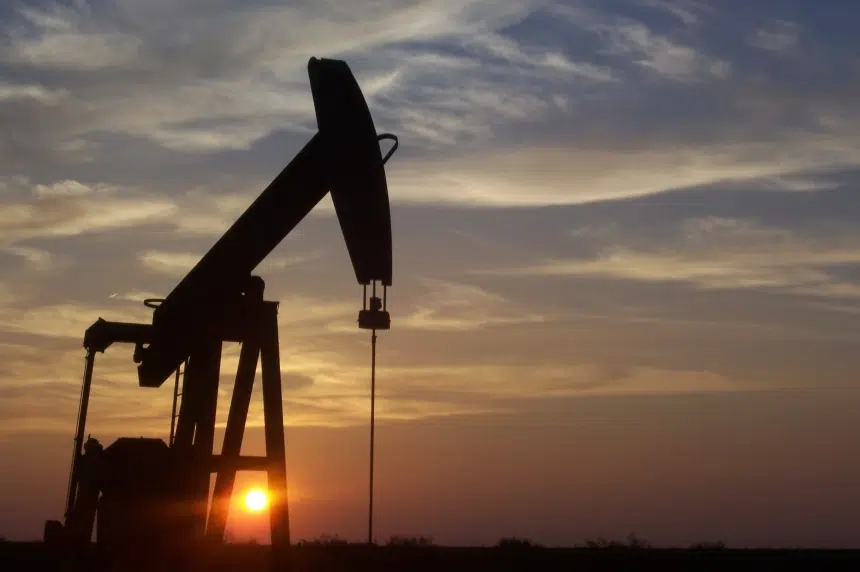The pain at the pump won’t be going away anytime soon, and it could end up getting a lot worse.
That’s according to En-Pro International chief petroleum analyst Roger McKnight.
He says record-breaking gas prices around Canada and the United States will continue to reach new heights now that a ban on Russian oil and other energy imports was put in place Tuesday.
“That’s certainly blowing up prices yet again because (U.S. President Joe Biden) should have done that about three weeks ago,” McKnight said. “But he’s doing it now to try to shut down the Russian president and Russian economy.”
As of Tuesday, the price of regular gas at most stations in Regina was $1.68 per litre. In Canada, McKnight anticipates governments will attempt to get prices under control.
“Provincial governments could look at cutting back on taxes,” he said as one way prices could be lowered at the pump.
But that isn’t the plan in Saskatchewan. Premier Scott Moe said while his government is looking at ways to help people weather a higher cost of living, he isn’t actively looking at reducing or eliminating the fuel excise tax much like Alberta is doing.
“Alberta is much more reliant on the oil price than we are in Saskatchewan. We have a much more diversified natural resource-based economy,” Moe said Monday.
In Alberta, the fuel tax waiver will go into effect on April 1, knocking off 13 cents per litre as long as the price of U.S. crude oil remains over $90 a barrel.
McKnight said depending on what happens with the carbon tax, officials in Saskatchewan might end up changing course.
“If (Prime Minister Justin) Trudeau cancels the carbon tax increase scheduled for April, which is about 2.2 cents a litre, then I’m quite sure some governments will do something just as a sign of confidence of trying to back up the consumer,” he said.
In the meantime, McKnight anticipates everything else going up as a result of surging gas prices.
“It impacts everything because from oil, you’re refining crude oil into gasoline, diesel, jet fuel, petrochemicals, lubricants — everything,” he said. “When the price goes up like 50 or 60 per cent, something has to go up.
“If you’re taking cauliflower from California to Regina or wherever and your price goes up 18 cents a litre over the weekend, somebody has to pay for it. And it’s the consumer. It isn’t a freebie. The price of energy is a huge factor in the consumer price index and that factor is going right through the roof right now.”
When asked how high the price of gas could get in Saskatchewan, McKnight said it was hard to say, but another increase would be happening soon.
“It’s certainly not going to go down,” he said. “It’s honestly kind of ridiculous because we have the fourth-largest reserves of crude oil.
“It’s kind of sad, really. But we can only blame our politicians for that.”
Down on the farm
Higher prices for gas and diesel are making things a lot tougher on farmers.
Jesse Ridgway farms near Lang, about 50 kilometres northwest of Weyburn. She said budgeting for this year has been a challenge.
“This year, there’s sure a lot of use of the eraser and redoing and touching up on a regular basis. There are a lot of changing prices that just seem to be going up and up,” she said.
You can’t run a farm without machinery, and machinery needs fuel to run.
“Diesel is a big part of our operation, as it is (with) any farm. We use tens of thousands of litres every year. It’s a big line item, so it’s a bit scary,” she explained.
Ridgway’s farm has got a lot of snow this winter, which is at least one positive after a summer of drought.
But gas prices aren’t the only problem heading into spring, either.
“Supply chain issues have been a bit scary, just whether you can get what you’re looking for when you need it … So that’s a little bit unnerving,” she said.
However, that doesn’t mean Ridgway is writing this year off yet by any means.
“Risk is up overall,” she said, “but still, farmers are farmers for a reason, so optimism is still pretty good.”
— With files from 980 CJME’s Dom Lucyk







